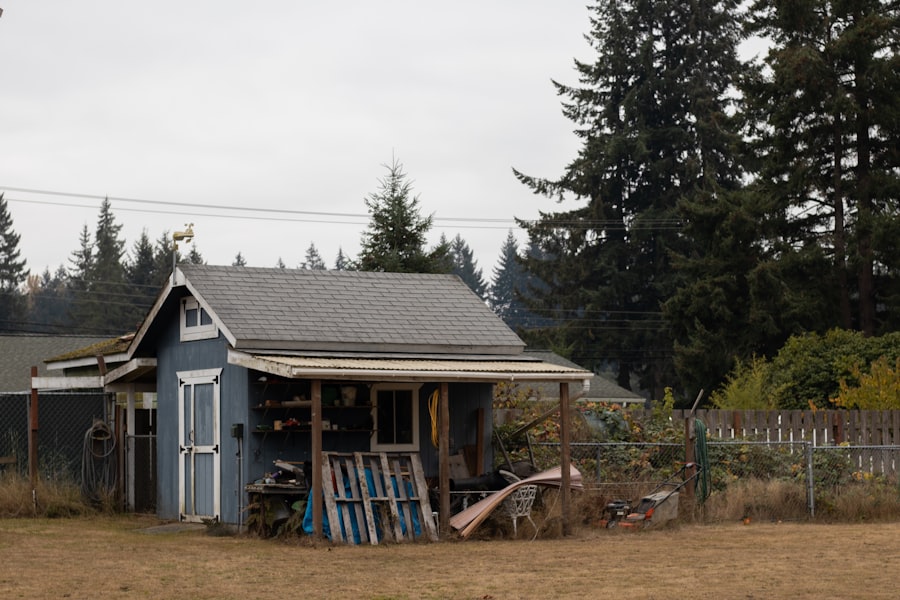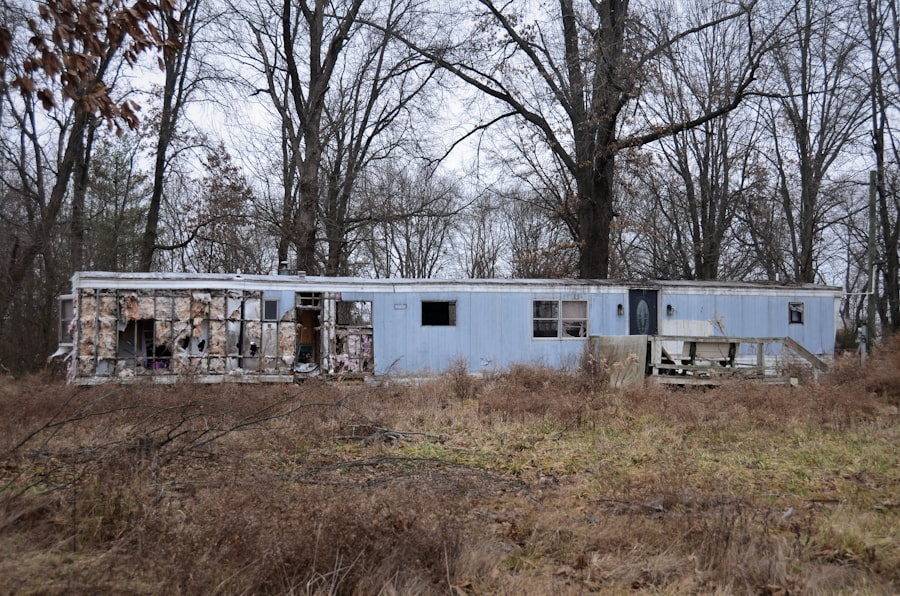Foreclosed mobile homes represent a unique segment of the real estate market, often overlooked by potential buyers. A mobile home becomes foreclosed when the owner defaults on their mortgage payments, leading the lender to reclaim the property. This process can occur for various reasons, including financial hardship, job loss, or unexpected medical expenses.
Unlike traditional homes, mobile homes are typically manufactured in factories and transported to a designated site, which can make them more affordable options for many buyers. However, the foreclosure process can vary significantly from state to state, affecting how these properties are sold and the rights of the previous owners. The appeal of foreclosed mobile homes lies in their potential for significant cost savings.
Buyers can often acquire these properties at a fraction of their market value, making them an attractive option for first-time homeowners or investors looking to expand their portfolios. However, understanding the nuances of mobile home ownership is crucial. Unlike traditional real estate, mobile homes may be subject to different regulations and zoning laws, which can impact their resale value and livability.
Additionally, many foreclosed mobile homes may require repairs or renovations, which can add to the overall cost of ownership. Therefore, it is essential for prospective buyers to conduct thorough research and understand what they are getting into before making a purchase.
Key Takeaways
- Foreclosed mobile homes can offer affordable housing options but require careful evaluation.
- Benefits include lower purchase prices and potential for value appreciation after renovations.
- Important factors to consider are the home’s condition, location, and any outstanding liens or fees.
- Financing options may differ from traditional homes, often requiring specialized lenders or cash purchases.
- Thorough inspections and awareness of common pitfalls help avoid costly repairs and legal issues.
Benefits of Buying a Foreclosed Mobile Home
One of the most compelling benefits of purchasing a foreclosed mobile home is the potential for substantial financial savings. These properties are often listed at prices significantly lower than comparable traditional homes, allowing buyers to enter the housing market with a smaller initial investment. For instance, while a conventional home in a desirable neighborhood might sell for $300,000 or more, a foreclosed mobile home in the same area could be available for as little as $50,000.
This price disparity can make homeownership accessible to individuals and families who might otherwise struggle to afford a traditional property. In addition to lower purchase prices, foreclosed mobile homes can also offer flexibility in terms of location and lifestyle. Many mobile homes are situated in communities that provide amenities such as swimming pools, clubhouses, and recreational facilities.
This can enhance the quality of life for residents while fostering a sense of community. Furthermore, mobile homes can be placed in various settings, from rural areas to urban centers, allowing buyers to choose a location that best suits their needs and preferences. The ability to relocate a mobile home also adds an element of versatility that traditional homes do not offer.
Factors to Consider Before Purchasing a Foreclosed Mobile Home

Before diving into the purchase of a foreclosed mobile home, several critical factors must be considered to ensure a wise investment. One of the primary considerations is the condition of the property. Many foreclosed mobile homes may have been neglected or poorly maintained by previous owners, leading to potential issues such as plumbing problems, electrical failures, or structural damage.
It is essential for buyers to conduct a thorough inspection of the home before finalizing any purchase agreements. Engaging a professional inspector who specializes in mobile homes can provide valuable insights into the property’s condition and help identify any necessary repairs. Another important factor is understanding the legal implications associated with purchasing a foreclosed mobile home.
Buyers should familiarize themselves with local laws regarding mobile home ownership and foreclosure processes. In some cases, there may be liens or unpaid taxes attached to the property that could complicate ownership. Additionally, prospective buyers should be aware of any community rules or regulations that govern mobile home parks or neighborhoods.
These regulations can affect everything from property modifications to rental agreements if the buyer intends to lease the home rather than occupy it themselves.
Where to Find Foreclosed Mobile Homes for Sale
| Source | Type of Listings | Average Price Range | Location Coverage | Additional Features |
|---|---|---|---|---|
| Real Estate Websites (Zillow, Realtor.com) | Foreclosed Mobile Homes, Bank-Owned Properties | 10,000 – 50,000 | Nationwide | Search filters, price alerts, neighborhood info |
| Bank and Lender Websites | Bank-Owned Mobile Homes | 8,000 – 45,000 | Varies by bank | Direct purchase options, foreclosure auctions |
| Foreclosure Auction Sites (Auction.com, Hubzu) | Foreclosed Mobile Homes, Auction Listings | 5,000 – 40,000 | Regional to Nationwide | Live auctions, bidding process, property details |
| Local County Public Records | Foreclosure Notices, Auction Announcements | Varies | Local | Official records, legal notices |
| Mobile Home Parks | Foreclosed or Repossessed Mobile Homes | 7,000 – 35,000 | Local/Regional | On-site inspection, park rules info |
Finding foreclosed mobile homes for sale requires a strategic approach and an understanding of where these properties are typically listed. One of the most common sources is online real estate platforms that specialize in foreclosures. Websites such as Zillow, Realtor.com, and Foreclosure.com allow users to filter searches specifically for mobile homes in foreclosure.
These platforms often provide detailed information about each property, including photos, descriptions, and pricing history. In addition to online resources, local real estate agents who specialize in foreclosures can be invaluable allies in the search process. These professionals often have access to listings that may not yet be available on public platforms and can provide insights into market trends and pricing strategies.
Networking within local real estate investment groups or attending foreclosure auctions can also yield opportunities to find hidden gems in the market. Furthermore, government agencies such as the Department of Housing and Urban Development (HUD) often list foreclosed properties for sale, including mobile homes that have been repossessed due to defaulted loans.
Financing Options for Foreclosed Mobile Homes
Financing a foreclosed mobile home can differ significantly from securing a mortgage for a traditional home. Many lenders view mobile homes as personal property rather than real estate, which can limit financing options. However, several avenues exist for potential buyers seeking funding for their purchase.
One common option is obtaining a chattel loan, which is specifically designed for financing movable personal property like mobile homes. Chattel loans typically have shorter terms and higher interest rates compared to traditional mortgages but can be an effective way to secure funding. Another financing option is through government-backed loans such as those offered by the Federal Housing Administration (FHA).
FHA loans can be used to finance manufactured homes that meet specific criteria regarding size and construction standards. These loans often come with lower down payment requirements and more flexible credit score criteria, making them accessible to a broader range of buyers. Additionally, some credit unions and community banks may offer specialized loan programs tailored for mobile home purchases, providing another avenue for financing.
Tips for Inspecting a Foreclosed Mobile Home

When inspecting a foreclosed mobile home, it is crucial to approach the process with a keen eye and an understanding of what to look for. One of the first areas to assess is the structural integrity of the home. This includes checking for signs of water damage, such as stains on walls or ceilings, which could indicate leaks in plumbing or roofing issues.
Additionally, buyers should examine the foundation and undercarriage of the mobile home for any signs of sagging or instability. Beyond structural concerns, it is essential to evaluate the home’s systems thoroughly. This includes inspecting electrical wiring, plumbing fixtures, heating and cooling systems, and appliances if they are included in the sale.
Buyers should also pay attention to insulation quality and ventilation systems since these factors can significantly impact energy efficiency and comfort levels within the home. Engaging a qualified inspector who specializes in mobile homes can provide peace of mind and help identify potential issues that may not be immediately visible.
Renovating a Foreclosed Mobile Home
Renovating a foreclosed mobile home can be an exciting opportunity for buyers looking to personalize their space while increasing its value. However, it is essential to approach renovations with careful planning and budgeting in mind. One common renovation project involves updating outdated interiors, such as replacing old carpeting with modern flooring or refreshing kitchen cabinets with new paint or hardware.
These relatively simple updates can dramatically enhance the aesthetic appeal of the home without requiring extensive renovations. Another critical aspect of renovation is addressing any structural or functional issues identified during inspections. This may involve repairing plumbing leaks, upgrading electrical systems to meet current codes, or reinforcing weak areas in the foundation or walls.
While these projects may require more investment upfront, they are crucial for ensuring long-term safety and livability in the home. Additionally, buyers should consider energy-efficient upgrades such as installing new windows or insulation to reduce utility costs over time.
Pitfalls to Avoid When Buying a Foreclosed Mobile Home
While purchasing a foreclosed mobile home can offer significant advantages, several pitfalls must be avoided to ensure a successful transaction. One common mistake is failing to conduct thorough due diligence before making an offer on a property. Buyers should not only inspect the home but also research its history, including any past liens or legal issues that could affect ownership rights.
Skipping this step can lead to unexpected complications down the line. Another pitfall is underestimating renovation costs associated with foreclosed properties. Many buyers may be drawn in by low purchase prices but fail to account for necessary repairs and upgrades that could arise after closing.
It is essential to create a realistic budget that includes both purchase costs and anticipated renovation expenses to avoid financial strain later on. Additionally, buyers should be cautious about rushing into decisions without fully understanding their financing options and legal obligations related to mobile home ownership; taking time to educate oneself can prevent costly mistakes in the long run.



